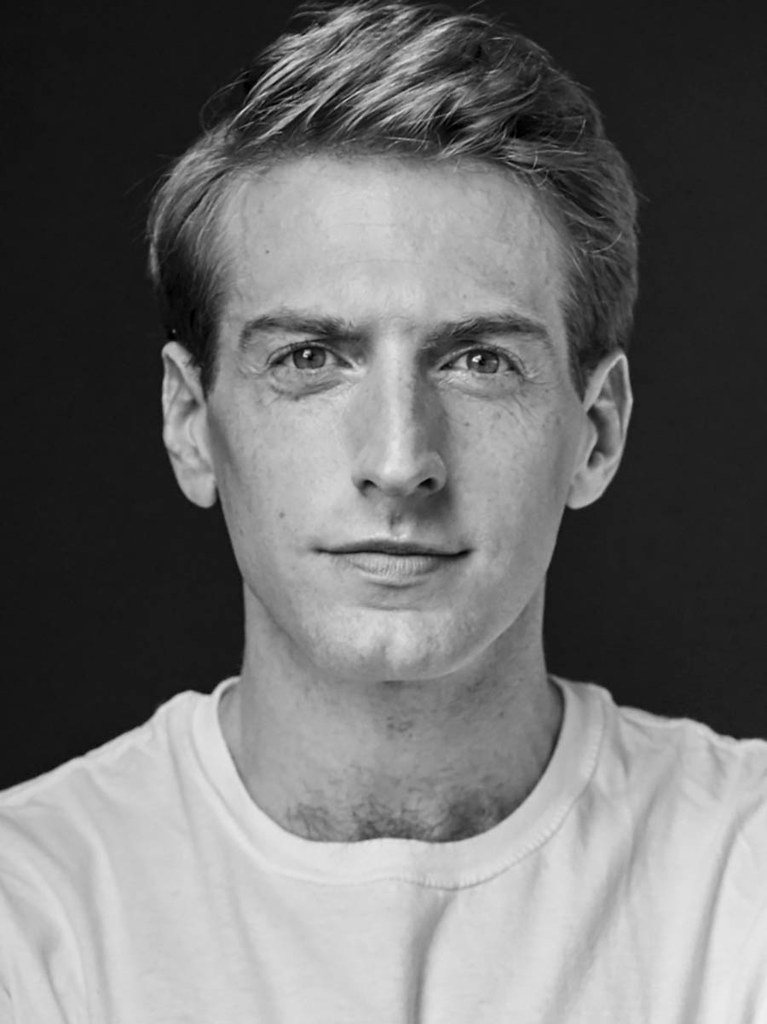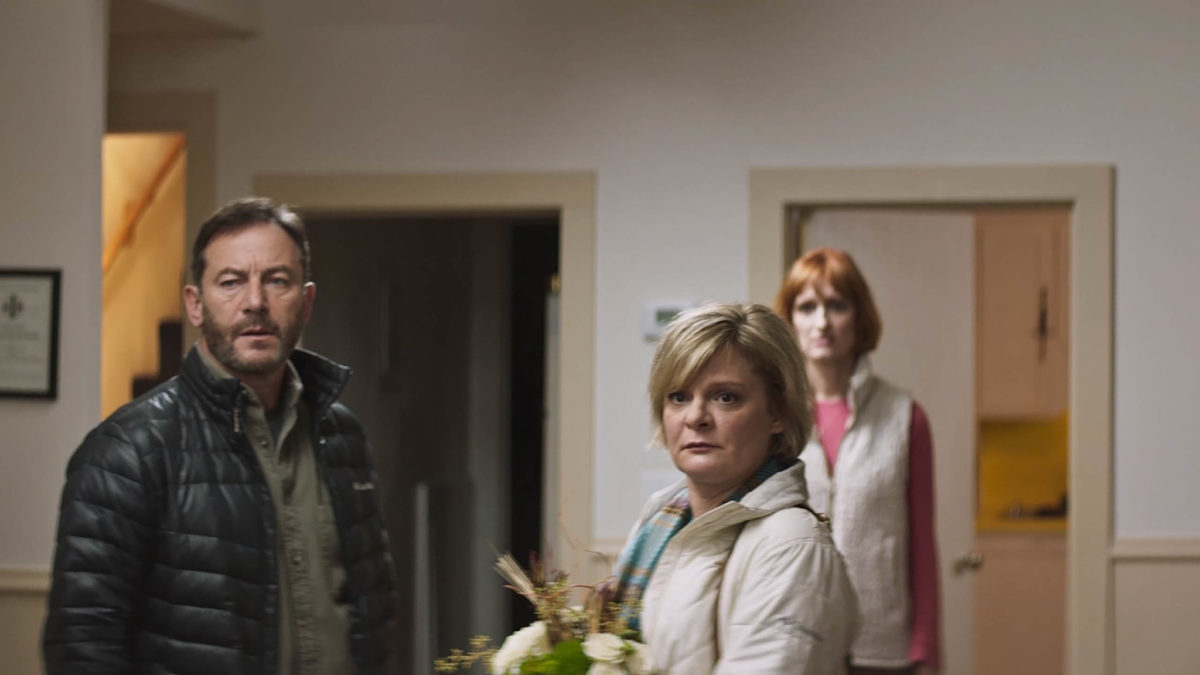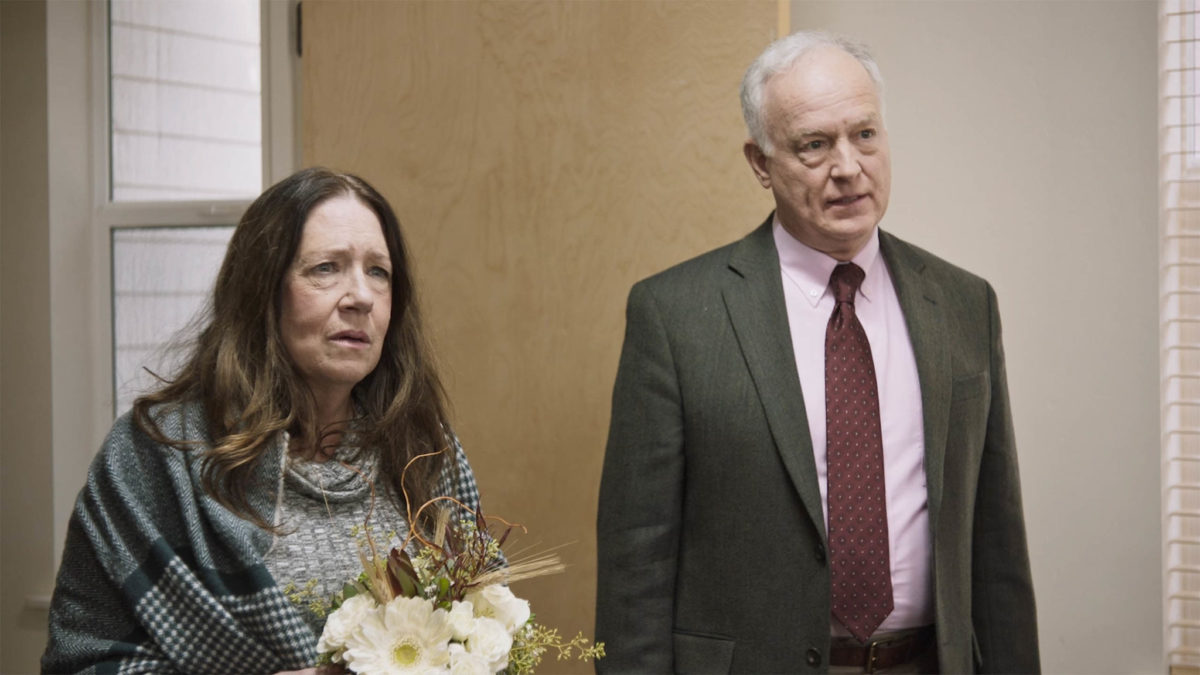After building a career as an actor, first-time director Fran Kranz found his passion in the form of Mass. Framed as a conversation between two sets of parents, the drama sees incredible work from Ann Dowd and Jason Isaacs, with performances from Martha Plimpton and Reed Birney accomplishing more than just providing backup. Consisting of a single conversation in a single room for over 100 minutes, these couples sort through their grief and anger in hopes of healing after a fatal school shooting incident between their children years prior. A wrecking ball full of powerful emotion, Mass represents a step-up in Kranz’s career, with its story likely growing in resonance as time goes on, an unfortunate truth that consumed the director.
Kranz sat down with The Film Stage to chat about his inspiration for the film, his own dreams of directing, his changing perspective with the birth of his daughter, and the economic and religious undertones in Mass.
The Film Stage: Are you having to relook at the film now that it’s come out? Has it changed in your mind?

Frank Kranz: Someone told me you never finish a film––you just abandon it. And that happened, for sure. I remember, distinctly in June of 2020, saying I’m done. I’m starting to hate this thing. I’m done. It’s been such an emotional journey and process, it’s been so hard. It’s taken a toll on my personal life. It was hard to decide on the picture lock, which is a huge thing. At least I’m a first-time director, so I’ve never done it. But that was a monumental day, and I can remember it in June. This is the movie I wanted to make. This was in my head, this is the vision I had, there are certain things that change, but they change for mostly technical reasons. I am really, really proud of this film. And I wouldn’t really want it any other way.
When was the last time you watched it?
Right around Christmas. But it’s funny. I’ll tell you the last time I really watched it was probably back in the spring. I feel like the last time I watched and cried was significant, because there was a point in the process where you’re faced with the choice to kind of listen to some notes, or stick to your artistic vision. And I feel like every director probably has that moment. I needed to make this for myself. I needed to believe in the movie. I remember watching it home alone, getting sort of my place to myself and crying and thinking that it works. And I’ve cried enough over this damn thing. And it’s still making me cry. And that’s it. I’m ready to walk away. I think it’s been quite a while since I did that. But it was kind of a nice way to say goodbye.
Do you think you could have written and made this film if you weren’t a father?
I have a four-year-old, and that I think is a lot of where this came from, because the Parkland shooting was the first major international headline shooting since the birth of my daughter. She would have been just over one [when it happened]. So it affected me differently. So much of this has been about being a father, being a husband. Again, it was inspired by a shooting, but is so much more about how we relate to one another and human relationships.
I think it’d be dishonest to say anything but no. I have all these ideas for movies, right? I have other scripts. And only one is actually finished. The others are kind of these false starts. They don’t really get all the way there. And it’s hard. This thing was never an idea that I had––it completely took me over, it took me by surprise, it took over my life. And I think it was all because of the rawness, the fragility of being a new parent. And having this thing that I cared about far more than myself, for the first time in my life, and the sort of overwhelming emotion of that, and the real fear that comes of wanting to protect this child. My focus has been on this ever since. As a parent, I want her to grow up seeing me actively pursuing work. As an actor, I’m waiting around for a phone call that doesn’t come. So much of life as an actor feels passive. I want her to see me as someone more proactive, and I want her to see me attack things and take full advantage of my life. Without her, I might still just be dreaming about making movies.

What type of film did you hope or want to make as your directorial debut? Did you have something specific in mind?
Look, my favorite movies are Star Wars, 2001. I wrote a script which I think is fantastic, but it’s got aliens in it. I like big movies. I want to make the Iliad and I want to make King Lear. It was this reality check, because I’m gonna be 40 this year. There’s not a lot of first-time directors making the Iliad. It was coming to grips with reality and trying to lower my sights. And yet I feel like I’ve made a movie that is about heroism. I really do. I really think what these people do in this room, their struggle to be reconciled, their determination to heal, the conviction that they have to heal and possibly forgive is as heroic and transcendent as any kind of human behavior. And I think there is something operatic about this film, despite the simplicity of it, and the intimacy and the ordinariness of the room and the location and the setting that the story takes place in. I feel like it has all the emotions of any epic.
There’s little talk of economic status or wealth in the film, besides a couple small comments. Why not make that a bigger part of the characters’ conversation or a focus of the film?
What’s funny, as far as economic disparity, I’ve had people pick both parents being of a lower socioeconomic class or status. People see it differently, which I think is really interesting. I made a really conscious effort to never be too specific about that. I did so because that very thing would happen, that people could interpret it and see things differently. In my research, I could not find a specific, consistent socioeconomic level. If I’m going to make a choice about this family being particularly well off, or better off than the other family, I felt like I might be drawing too much attention to something that might not be indicative of the truth in the real world. So I tried to keep it ambiguous. For the most part, I welcome that interpretation. And I’m glad that it can be disagreed upon.

How did doing all of this research on school shootings affect your personal life and mental health?
I tell people I spent two years crying in front of a laptop. I read everything I could. I’d read one book. And that would lead me to another, lead me to another, and I was constantly on the internet looking at different articles. I was fascinated by stories from The Forgiveness Project. Because it was essentially the setting of the film, bringing in families of victims with the perpetrators or families of perpetrators. I was fascinated since college about the Truth and Reconciliation Commission (TRC) in South Africa. So I had read Desmond Tutu, his book No future without forgiveness. And it was something that was so disturbing to me at a young age. Because, first of all, the book has accounts of some of the stories and some of the things that happened in South Africa. So on one level, the book is just a difficult read. There’s just some obviously terrible, terrible stories. And then on the other hand, when I first came across the TRC, I was a young college kid and I don’t know if arrogance is the right word, but I just thought there’s no way I would forgive someone if they killed a family member, I would not be able to forgive them. And so I was disturbed by the stories coming out of there, not just that people seem to be able to forgive, but that they would find compassion or even love for the offender. It’s this incredible selflessness and I thought how on earth people were doing this. I even gave a reading list to my cast and crew, but it was a week before we started shooting, so they all looked at me like I was crazy. I tried to speak with as many people as I could that had dealt with loss or dealt with gun violence. I’ve only recently sort of been able to kind of pull myself away from it. I have different reading at night now.
What role do you believe religion plays in these situations and in the film as a whole? It’s not mentioned much, but it’s definitely a part of the film.
Obviously, it takes place in a church. But I always felt that ideas and themes like forgiveness, reconciliation, reparation, that these are things that exist in a more spiritual realm or setting or even theological realm. It was important to me that it was a place of faith or house of worship, as opposed to just a home of one of the parents or a community center. I try to make that clear, early in the film, when you see that the church is used for other purposes, it has other purposes. There are the 12 step meetings and rehearsals and piano lessons. I’m not religious, but I went to church as a child and raised Christian. That was comfortable to me. I think if I might have been a different person, it could be in a temple or another place depending on who I was. But I also wanted to deconstruct the function of the church. The parents will meet in the parish hall. They’re meeting in a secular place, the Reverend is not there that day, the Reverend is not mediating the meeting, that God is not in the room. But spiritually, God is accessible, it is right around the corner. And it is potentially there if you choose to look at it, or contemplate it or be in a relationship with it. It’s much more about how I want people to question the characters’ faith. And by doing so, ask questions about their own faith and their own relationship with God or spirituality.
Mass premiered at Sundance Film Festival.
